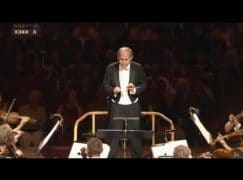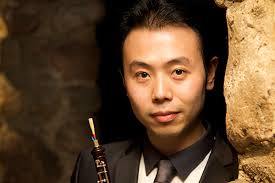German concerthall highlights Turkish political prisoner
NewsDüsseldorf’s Tonhalle has given its Human Rights Award 2022 to the Turkish cultural promoter Osman Kavala, who has been imprisoned by the Erdogan regime on political gounds.
Adam Fischer, chief conductor of the Düsseldorfer Symphoniker, said Kavala is a victim of massive political interference in the judicial system. ‘Obviously, a person who works for human and civil rights must be punished and silenced,’ he said.
Since Kavala is unlikely to be released to receive his award, it will be accepted on his behalf by a member of the Federal German Government, the Green politician Cem Özdemir.






There cannot be enough protests against regimes like the Turkish one.
But why must a classical music institution justify its role in society through political gestures that have nothing to do with the art form?
Why? Because the more classical music (or any other human pursuit) tries to seclude itself an ivory tower and disengage from the society it inhabits, the sooner it will become alienated and, ultimately, irrelevant.
Yes, that is the argument.
The idea is, that art – i.e. serious, high art, that is sophisticated and wants to be meaningful – has to engage with the reality of the world and of the human condition to be authentic. Otherwise it is a mere ornament and in fact, superfluous, or fake.
So, what do we make of Bach’s Brandenburg Concertos? Mozart’s piano concertos? Chopin’s sonatas and ballades? Brahms’ symphonies and concertos? Can they stand the test of authenticity through engaging with the world? Do they convey something of the human condition? It will appear that most of the existing repertoire would have to go into the dustbin. So, the ‘relevance’ of the art form has to be found somewhere else and that is NOT in a direct engagement with the world.
I think classical music is an art form of interiority and non-conceptual psychology, and not the best means of a direct engagement with the world. Its relevance can never be a political one, because it is something much too subjective and personal.
When people expect classical music, and its whole world of concertizing, as something politically and socially relevant, they act in the same way as the nazis and communists who wanted art to be part of state propaganda.
To all of this solipsism one might answer”Homo sum, humani nihil a me alienum puto”. Music has always been part of the reality of the world and the human condition. If ‘classical music’ were to opt out, it would be finished.
You do not understand the point. Keep trying!
But classical music does not exist in a bubble — it does not “emerge,” fully realised, upon a receptive world. There are valid points to be made in opposition to taking this sort of stand, but that is not one of them — the “interiority” of music.
Classical music, like all art, is made by human beings. Music is performed by human beings. If they feel sufficiently moved to give someone an award, whatever the reason, why shouldn’t they?
It’s a bit like actors speaking out about issues that concern them (the George Clooneys and Angelina Jolies of the world). Why shouldn’t they? People do not forsake their rights as citizens and sentient beings because they choose a career in the arts or show business.
That is not the point: when a gesture is made as a cultural institution it is no longer a gesture by an individual civilian.
You cannot, should not, use music as a means of political gesturing, it diminishes its function.
On this site people like Furtwängler and Gergiev and others are constantly criticized for cozying up to dictators. Okay. Now a musical institution stands up against a quasi-dictator – and is criticized as well. Go figure.
It is not so difficult. Both types of behavior are wrong.
Furtwängler did not “cozy up” to the Nazis. He merely (and erroneously) thought that the ivory tower of music precluded taking stands. He did support Hindemith and others, privately and professionally.
At least you acknowledge that a classical music institution has a role in society. In which case, each may choose its own role. For a German group to protest against Turkish repression is a veiled commentary on the role of Turks inside German society, which could affect any number of people in their audience.
Unfortunately, I feel that these awards, well intentioned as they are, will be counterproductive for the release of Osman. If you are a cynic, you can dismiss them as yet another virtue signaling by the West that comes with no personal penalty for the award giver. But the reality, is that the more “noise” people in Europe make, the more strident will be the posture of Erdogan or whoever is really behind the arrest. People in Turkey are slowly making progress in trying to free him and these kinds of long distance efforts will only prolong his misery.